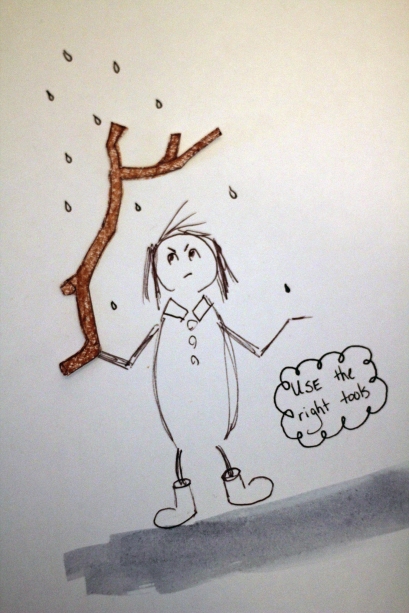I am at heart a curmudgeon.
I know this, and you know this, but reading Facebook this morning reminded me of it in a whole new way. The Christian liberal arts college I attended—now twelve or thirteen years ago—just announced they were killing their entire theatre program, and the visceral screams of all my theatre college friends are still echoing through my feed.
And it IS terrible, ridiculous, sad, and frustrating.
Art brings beauty and understanding to life in a way nothing else can, and if you aren’t giving your students places to foster, articulate, explore, and grow as entire PEOPLE, then the claim to education starts to get pretty sketchy.
But that wasn’t actually my first thought.
My first thought was one of those simple impulses that, often unfortunately, tell you so much about yourself. My thought was just:
What did you expect?
My college friends are bright, creative, interesting people. They worked really hard to build up the theatre program and community. They invested a lot. They made lifelong relationships and were changed for the better by the experience, and those are all really good things.
But however enlightened I aspire to be, however many zen books I read, and no matter how many deep breaths I seem to take, it’s starting to look like there will always be a part of me with a pickup truck and a sawed off shotgun living off the grid in the woods some place.
What do you expect from life, from institutions, from other people?
It’s hard enough to find people worth trusting, but institutions? Forget it. Not businesses, not governments or schools, not churches, political affiliations, or religions. It’s not personal, and only sometimes is it evil. In fact, the whole thing is probably best summed up in the first statement. It’s not personal. Most people are living so hand-to-mouth emotionally and spiritually there’s very little left over to care about anyone or anything else. My friends care about the theatre program because it meant something really special to them. The administration just sees a financial spreadsheet that ends in zeroes.
As for me, I have the luxury of not being heartbroken because my primary identity was more literary than theatrical. I participated, but I didn’t live it. I was a commuter, three years out of step with my peers in age and self-confidence. I watched the dust move lazily in the windows of the library instead. I wrote. I did my own thing.
And it’s been a long twelve years for me.
But trust me on this: I am not unfamiliar with the emotions of betrayal.
I also know what comes after: a lot of processing, a lot of sorting, a lot of letting go. Honestly, I think this announcement mostly feels poignant to me because it mirrors other betrayals in my life, and I’ve often wondered if the changes those hard times have etched on me are more good or bad.
I think there’s a lot of value in learning over time to focus on the things within your own control, to live in the present and not the past, to expect very little from other people. To cultivate an appreciation for that life off the grid with the pickup. But, of course, there’s always the other side of the coin. I can’t tell you how many times people have finished a story of some interaction gone sour by staring at me expectantly, and I have literally no idea how to respond though they obviously expect some kind of emotional reaction. Like wow, those people suck! or I can’t believe he said that! When all I’m thinking is: Yep. Totally not surprised those people did that. Totally believe he said that.
Sometimes I feel that I’m an unusually cold, cynical, or angry person. Sometimes I can’t relate to other people’s euphoric sense of community or identification with an institution. Sometimes it’s their surprised sense of injustice that throws me instead.
Good, bad, a mixture of the two. It’s life, I guess.
And life is what you make it. The end of an academic program doesn’t change or diminish the good memories I have from my own days there. Friendships will not falter or fall away because a program no longer exists. And opportunities will always exist for the people determined to find them—maybe not at CU, but somewhere. Art and theatre and friendship and community will go on. Before there was a theatre major there were still CU graduates moving to LA and doing residencies at theaters and directing plays in their new home towns. I know because my older sibs and in-laws and friends are those people.
Life goes on, even if it is harder. Then again, sometimes the life and art you build for yourself is all the more valuable for being hard.




